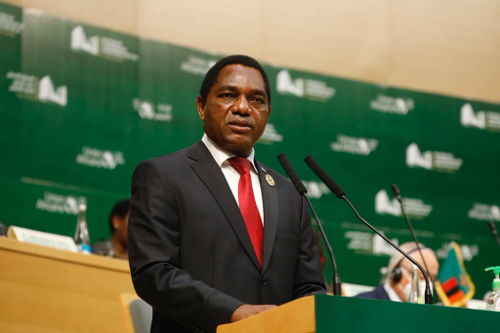Zambia's central bank holds key rate to support struggling economy

TLDR
- Zambia's central bank maintains key interest rate at 13.5% for the first time in almost two years to support drought-affected economy.
- Decision comes after six consecutive rate hikes totaling 450 basis points; influenced by supply-driven inflationary pressures, ongoing drought impact, and foreign exchange market reforms.
- Prudent monetary policy stance aimed at addressing economic challenges in Zambia by maintaining current interest rate.
Zambia's central bank decided to hold its key interest rate steady for the first time in nearly two years to support its drought-stricken economy. The central bank deemed the current monetary policy stance appropriate given that the inflationary pressures facing the country are supply-driven.
During a press briefing in Lusaka, Governor Denny Kalyalya announced that the monetary policy committee had kept the interest rate at 13.5%. This decision marked a significant pause after six consecutive rate hikes totaling 450 basis points.
Kalyalya explained that the decision was influenced by several factors, including the impact of the ongoing drought, the effects of the previous series of interest rate increases, adjustments to the statutory reserve ratio, and recent reforms in the foreign exchange market.
Key Takeaways
Zambia's economy is expected to grow by just 2.3% this year, a significant slowdown from the preliminary estimate of 5.8% growth in 2023. This deceleration is primarily due to the severe drought that has devastated crops, driven up food prices, and reduced hydro-electricity production, which is a critical energy source for the country. Annual inflation, currently at 15.4%, is forecasted to average 15.3% in 2024, higher than the previous forecast of 13.7%. The increase in inflation is largely attributed to supply-side pressures on food and energy, exacerbated by the drought. Looking further ahead, the Monetary Policy Committee (MPC) has adjusted its inflation forecasts for the outer years, expecting inflation to moderate gradually.

Next Frontier
Stay up to date on major news and events in African markets. Delivered weekly.
Pulse54
UDeep-dives into what’s old and new in Africa’s investment landscape. Delivered twice monthly.
Events
Sign up to stay informed about our regular webinars, product launches, and exhibitions.




